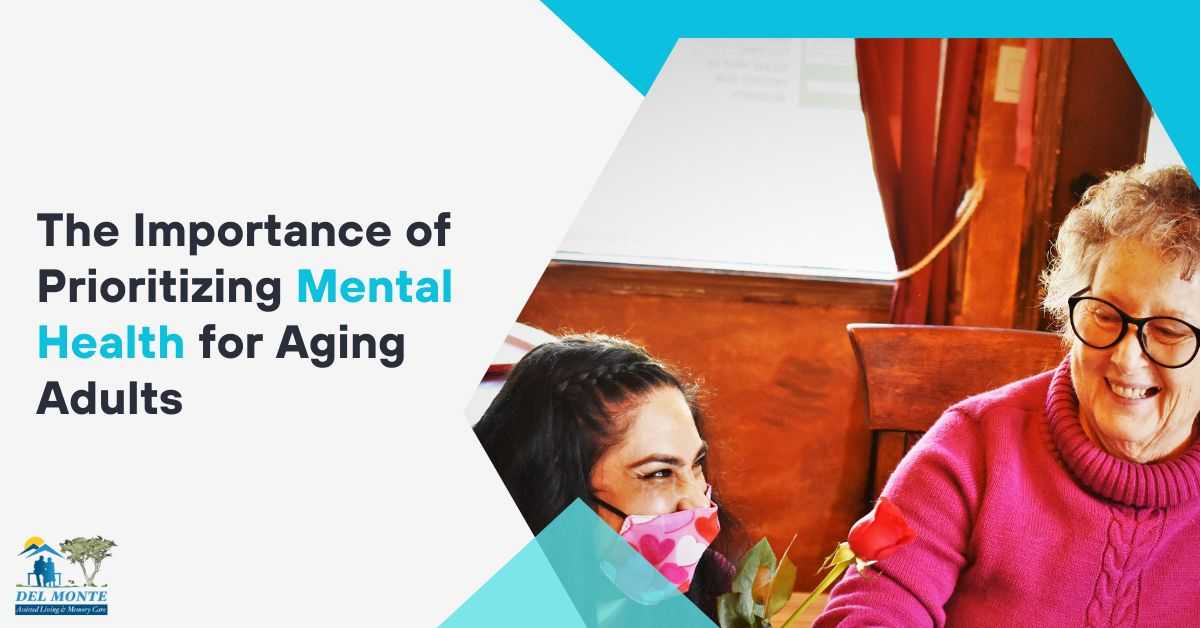Aging and Mental Health: Understanding the Connection
Aging is a natural phase of life, and as people get older, they experience changes in their physical and mental health. One of the most significant changes that come with aging is the decline in mental health. In fact, studies show that over 20% of adults over the age of 65 have some form of mental health issue. Thus highlightings the importance of prioritizing and staying informed of mental health and the concerns that accompany it among the older generation. It’s crucial to understand how aging and mental health are connected to ensure that older adults live their lives in good cognitive condition.
Aging Adults: Common Mental Health Issues They Face
Elderly experience several mental health issues that affect their daily lives such as depression, anxiety, and loneliness. Although they range in severity, these conditions can be quite impactful and stem from different life stressors including financial difficulties, health conditions, loss of a spouse or loved ones, and social isolation which can trigger many negative feelings. Such stressors can make it challenging for the older generation to maintain good mental health as toxic levels of stress can have lasting damage on the body. However, proper care and attention can reduce the amount of time the body remains in the alarm and resistance stage of stress as it repairs itself to normally functioning levels.
Mental Wellness: Ways to Promote Good Mental Health among Aging Adults
Mental wellness is crucial to maintaining good mental health in aging adults. Being mentally well means having a mind that is in order and functioning in your best interest. It allows you to think, feel, and act in ways that positively impact your physical and social well-being. Promoting mental wellness involves several factors that influence an individual’s quality of life. Here are a few ways aging adults can work on maintaining good mental wellness:
Consistent Exercise
Physical exercise is essential for aging adults’ overall well-being. Exercising can reduce stress, anxiety, and depression. Exercise is also known to boost confidence and self-esteem, which can improve mental wellness. Older adults can incorporate light exercise as part of their daily routine, such as walking or aerobics.
Healthy Eating Habits
Food plays a large role in one well being and by maintaining a balanced diet people can to improve their mental health. Consuming healthy meals rich in vitamins and minerals can enhance physical and mental well-being. Poor diets can lead to poor mental health, which can affect an individual’s mood and energy levels.
Social Interaction
Humans are innately social beings and require a level of interaction to maintain healthy lifestyles. As people age, their social circles may reduce, which leads to social isolation. Maintaining social interaction is critical as it lowers rates of anxiety and depression, higher self-esteem, greater empathy, and more trusting and cooperative relationships. Older adults can participate in social activities or join clubs or groups to interact with others, thus improving their mental wellness.
Counseling and Therapy
Counseling and therapy are effective ways to address mental health problems among older adults. Therapists can help aging adults cope with life stressors and offer coping mechanisms to manage symptoms of mental health issues as well as provide a listening ear to help them feel heard and understood.
Medication Management
Managing medication and being vigilant of side effects can help improve mental health among aging adults. Older adults should also ensure that their medication is appropriately administered and follow the prescribed dosage to ensure that they receive proper treatment.
Importance of Prioritizing Mental Health for Aging Adults
Prioritizing mental health for aging adults is essential as it directly enhances their quality of life and preserves their independence, thereby mitigating the need for institutionalization. Moreover, it alleviates the burden of mental health issues on family members responsible for their care. Additionally, adequate mental health care plays a crucial role in staving off cognitive decline in aging adults.
Conclusion
Prioritizing and increasing awareness of mental health for the elderly is crucial for their overall well-being. It’s essential to understand that mental health problems can arise at any age, and older age is not an exception. Using the approaches mentioned above to maintain good mental health can go a long way in the lives of aging adults in aiding in happier and more fulfilling lives.

